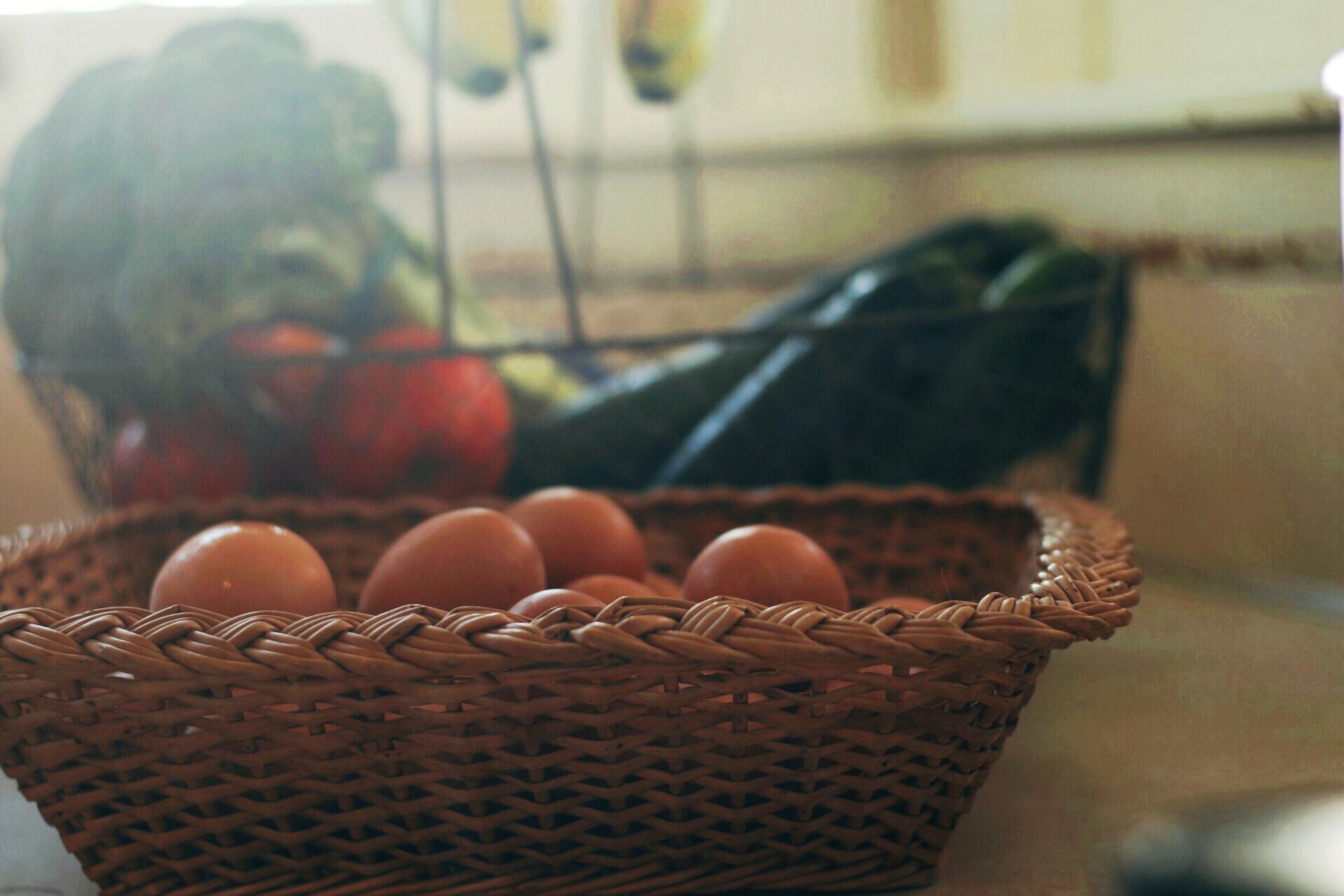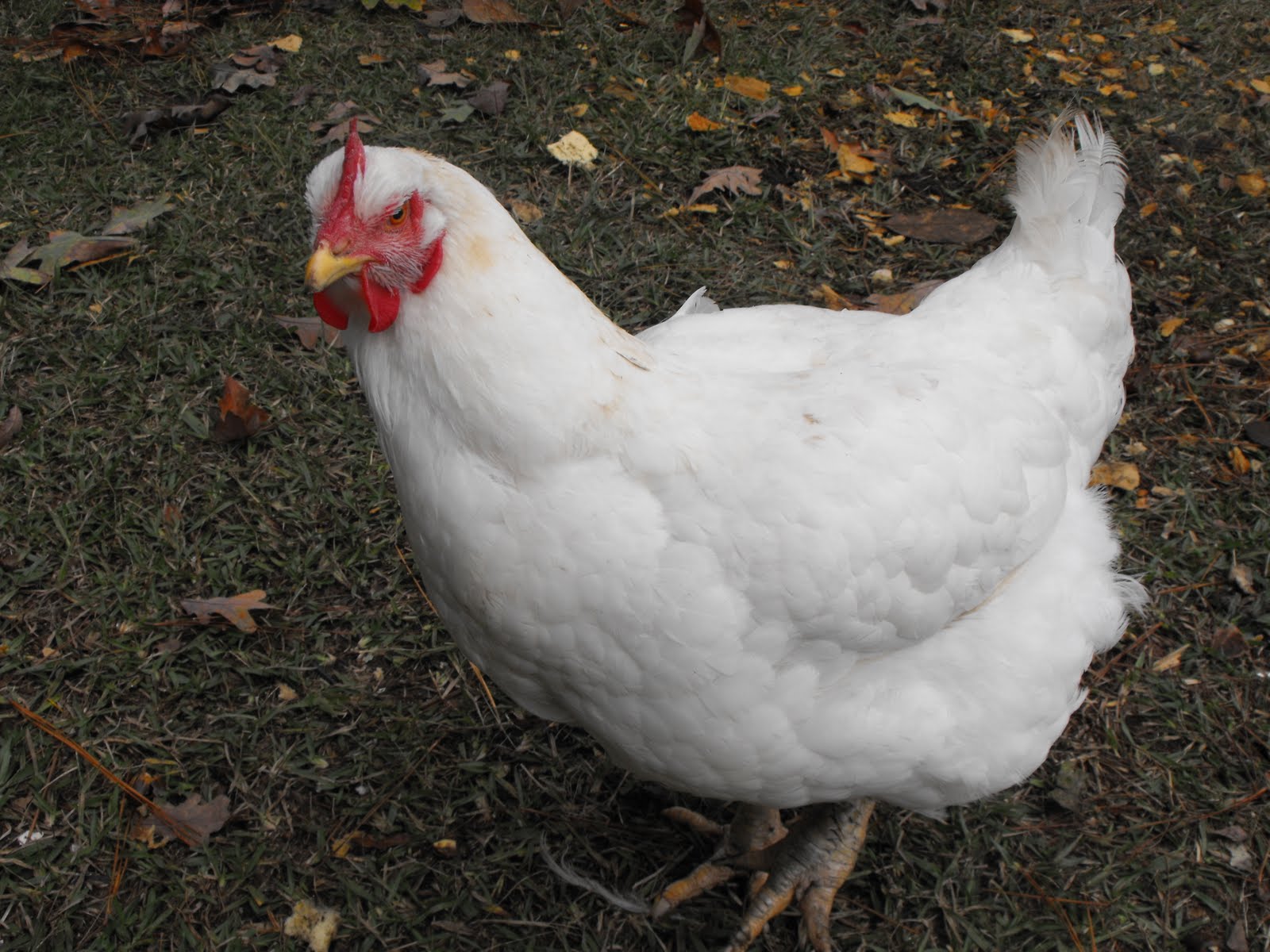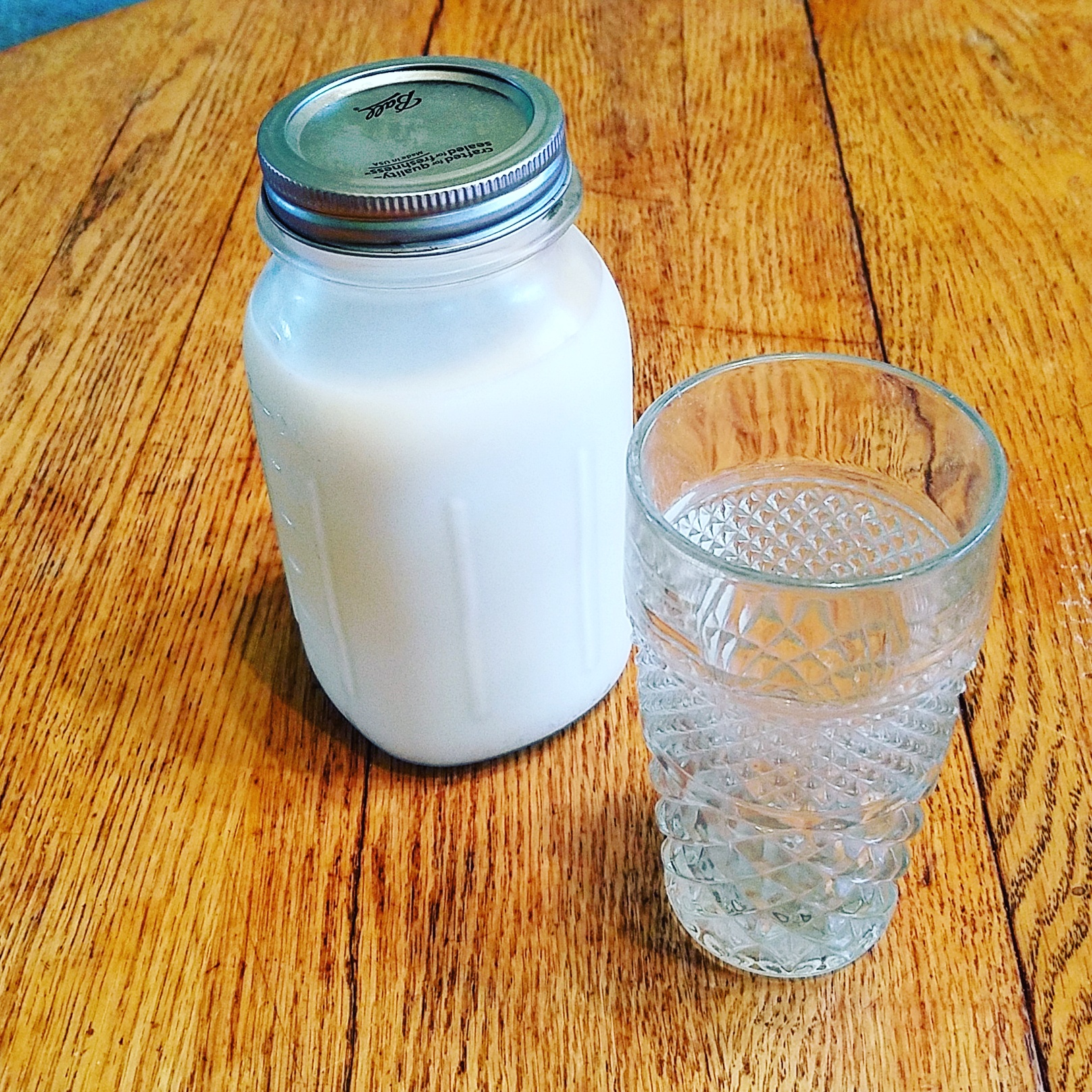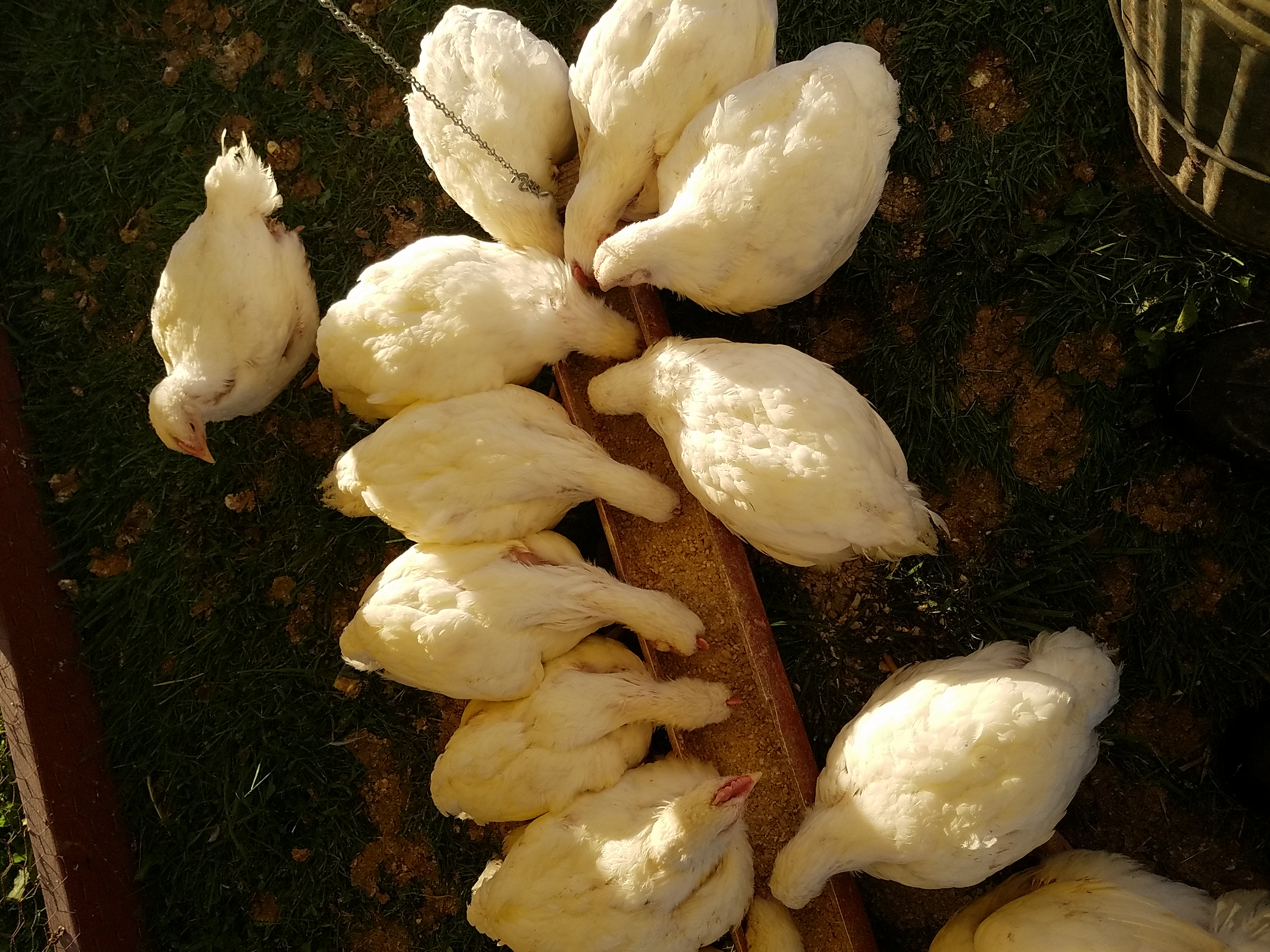A Mid-Summer Update

Why does summer fly by so quickly? Probably because there is so much to do! Who has time to read a long post? Not me! So here’s a quick update on what is happening on Love Led Farm, and more importantly, what is available for you.
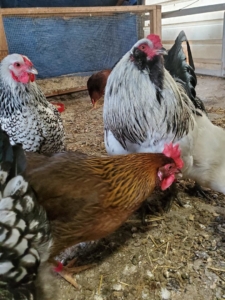
A few of the girls
Eggs–Duck and Chicken
Although I am starting to see signs of the annual Summer Slowdown, we still have quite a few eggs each day–so far. And because the girls eat so much of their summer diet by free ranging, I don’t see any reason to raise the prices–that’s good news for all of us!

Ducks on Bug Patrol
Meat Chickens
Although the July 8th flock of Cornish Cross is sold out, I still have plenty left for July 29 and September 16. There are still plenty of Rangers available for both pick-up dates, too.
If you are wondering what on earth I am talking about, head to our home page and click on the white meat bird for information on what we offer and when. Then choose your pick-up date(s) and pay your deposit.
But better do so soon as I have a feeling the remaining birds will quickly fly into somebody else’s freezer.
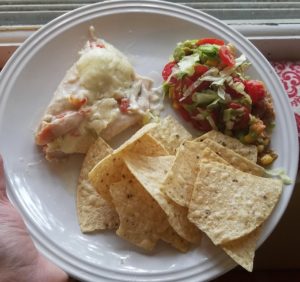
Chicken Enchiladas–one of the endless ways to use our mouth-watering chicken.
Our Pork
Wow, these pigs look good! It’s probably their healthy diet which includes goat milk and extra duck eggs. Like our chickens, folks who have previously purchased our pork are quickly claiming these for their freezers.
The good news is that we still have a little left. We sell hogs by the whole, half and quarter. With Byron Center Meat’s help, we craft a pork package that is exactly as you desire.
Meat shortage? Not you! Imagine roasts, chops, ribs, bacon, and an assortment of sausages, all in your freezer! Hungry yet?
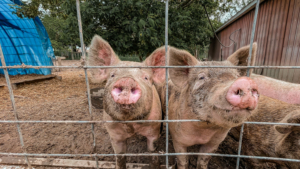
Posing Pigs
Honey
Could you use some? I still have several jars of Love Led Farm raw honey that are available from our last harvest.
Recently, one customer bought a jar to help with her seasonal allergy issues. I add mine to goat milk yogurt and spoon a little over fresh berries. Like heaven in a dish!
I keep honey on our farm table next to the eggs. If you don’t see the size you’d like, feel free to ask.
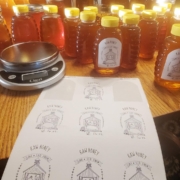
We still have a few jars of this golden harvest left–for you.
And Goats
Nothing entertains me more than watching my 4 little goat kids leaping, running, and chasing one another around their pasture. And when one crawls on my lap asking for a snuggle? There are no words
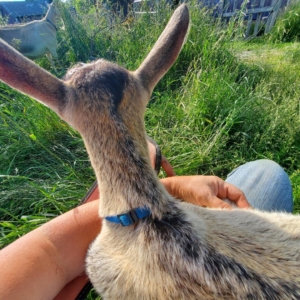
Snuggling with Noah on a perfect summer evening
The milk their mamas are producing is so sweet and delicious–I think it’s the best they’ve ever given! I still have room for another herd share member or two. Interested?
Wondering if you would use 1/2 gallon each week? What about making yogurt? I can teach you how. Yogurt freezes well so you’ll have plenty all winter long. Versatile yogurt can be used as a substitute for sour cream.
Also, consider your pets. I have found that adding goat milk to my dog’s diet helps her digestive system as well as improving her coat and skin.
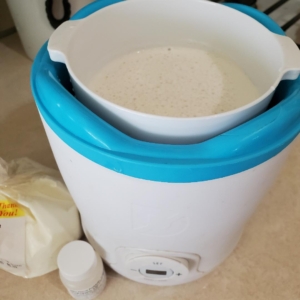
Goat milk yogurt ready to culture–a perfect way to use extra milk and preserve a wholesome source of dairy for winter.
Soak in this wonderful summer but don’t forget that colder temperatures will be back–sooner than most of us desire. Perhaps it’s time for you to think about what will be in your freezer next winter. We can help!
See you soon…on Love Led Farm!
Warmly,


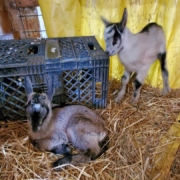
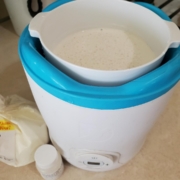
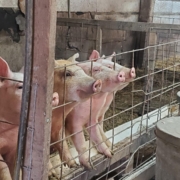
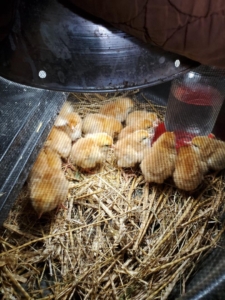
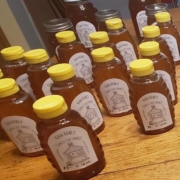
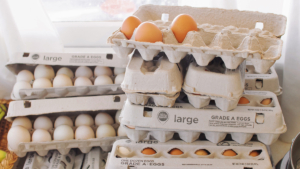
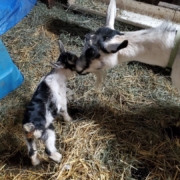
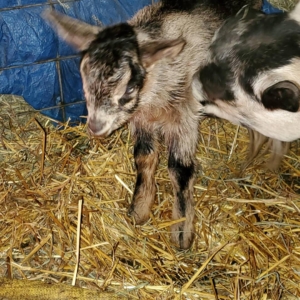
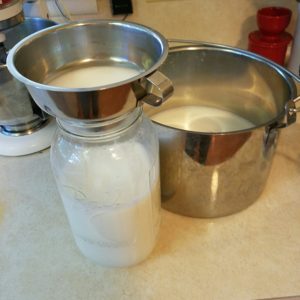
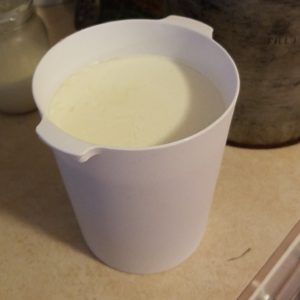
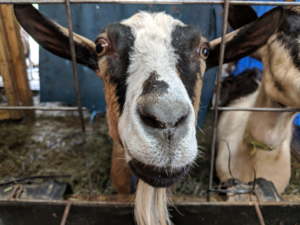
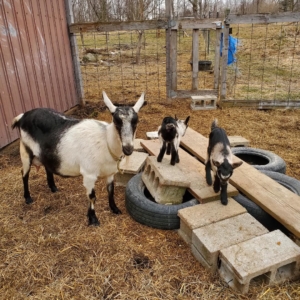
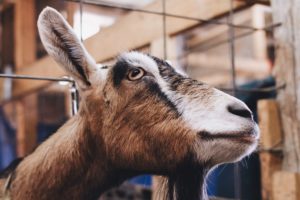
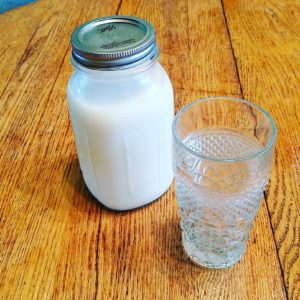
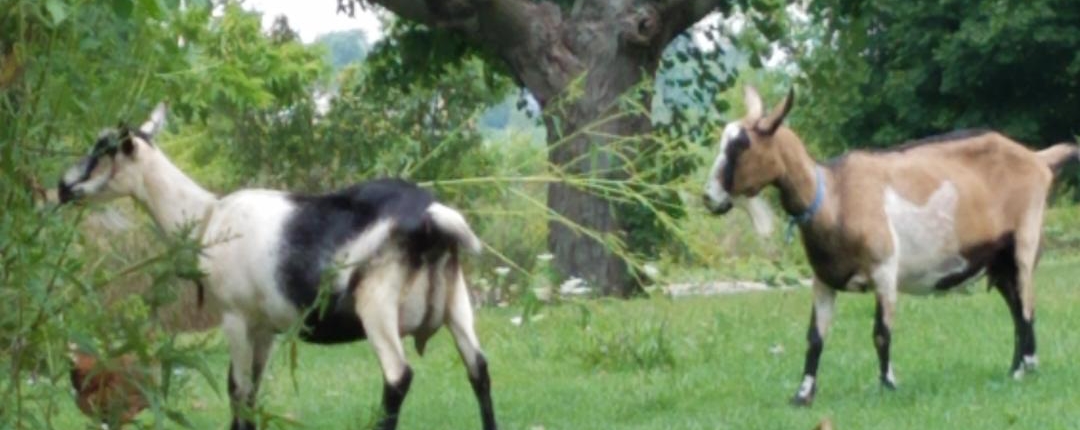
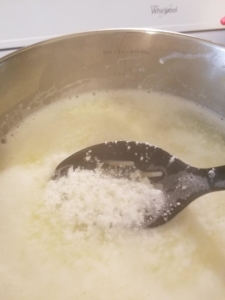
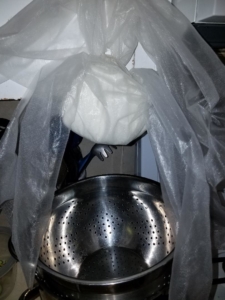
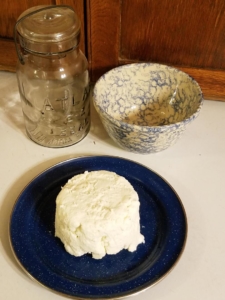

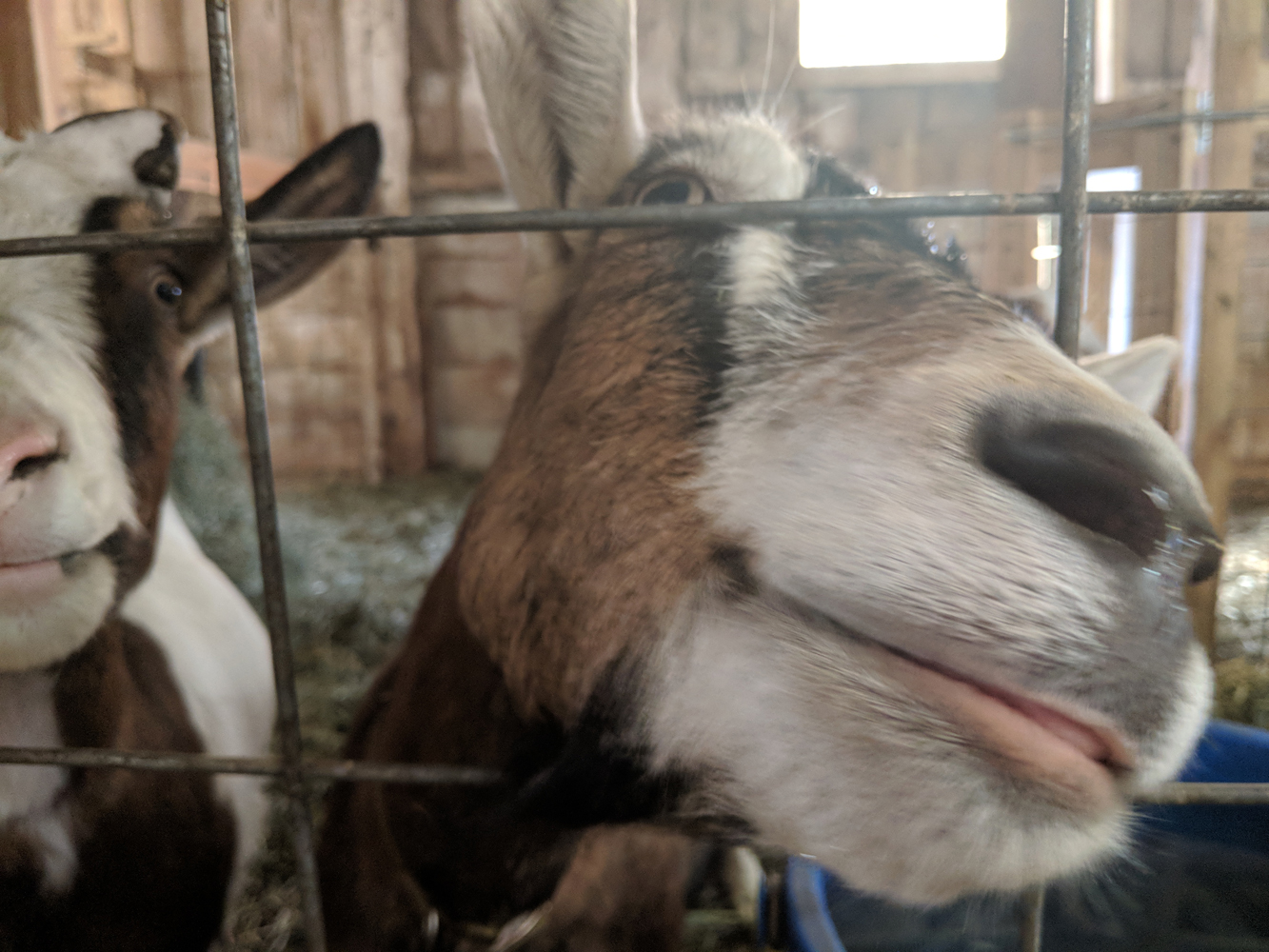

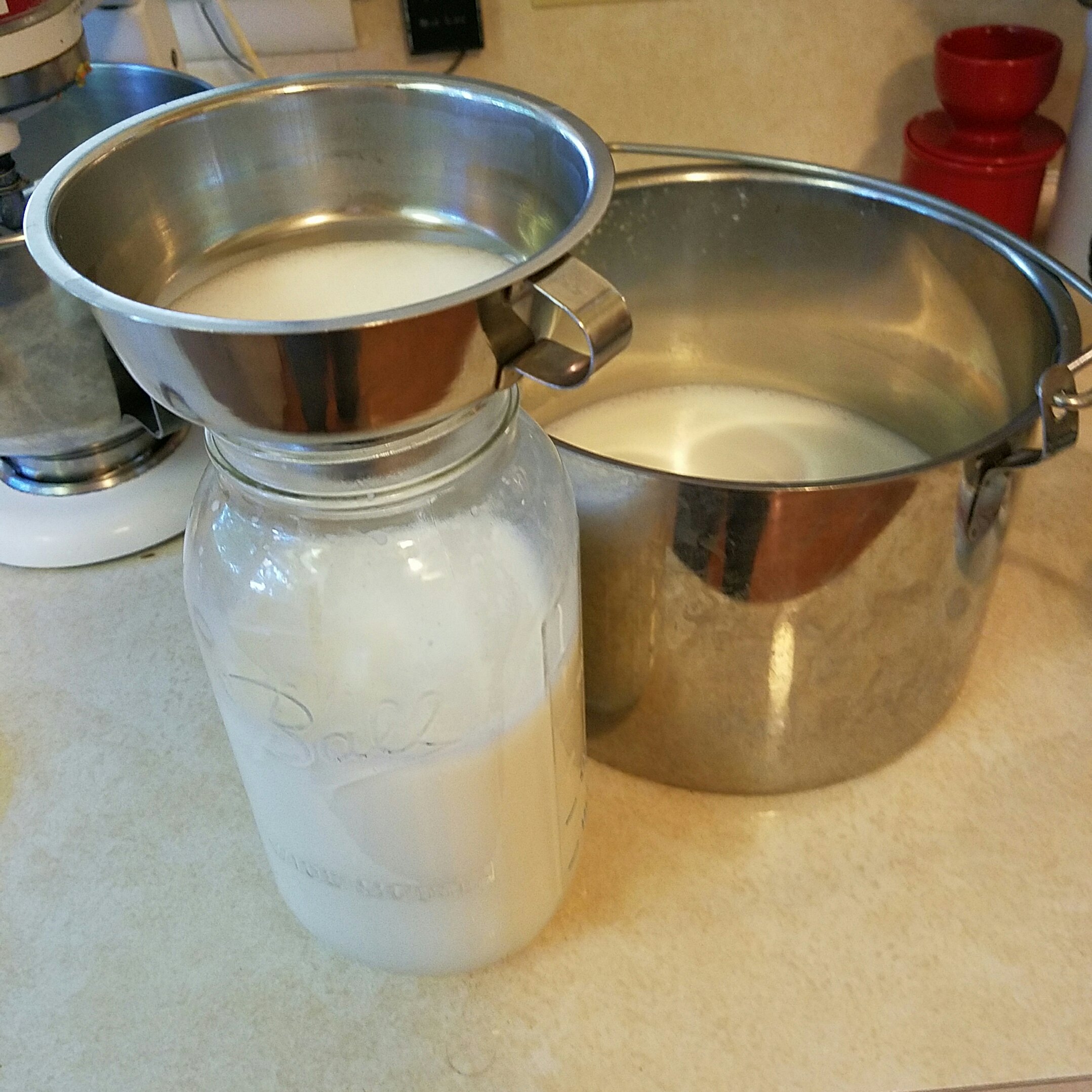 To be able to offer my friends and customers “raw” food basics like chicken, milk, and eggs in their purest, most nutritious state, is a delight. These truly are building blocks for healthy living. But like you, as I hold those eggs in my hand, and look at my milk jug, my mind searches for new ways to use them. And so I scour the internet and talk with others, looking for ideas and recipes.
To be able to offer my friends and customers “raw” food basics like chicken, milk, and eggs in their purest, most nutritious state, is a delight. These truly are building blocks for healthy living. But like you, as I hold those eggs in my hand, and look at my milk jug, my mind searches for new ways to use them. And so I scour the internet and talk with others, looking for ideas and recipes.